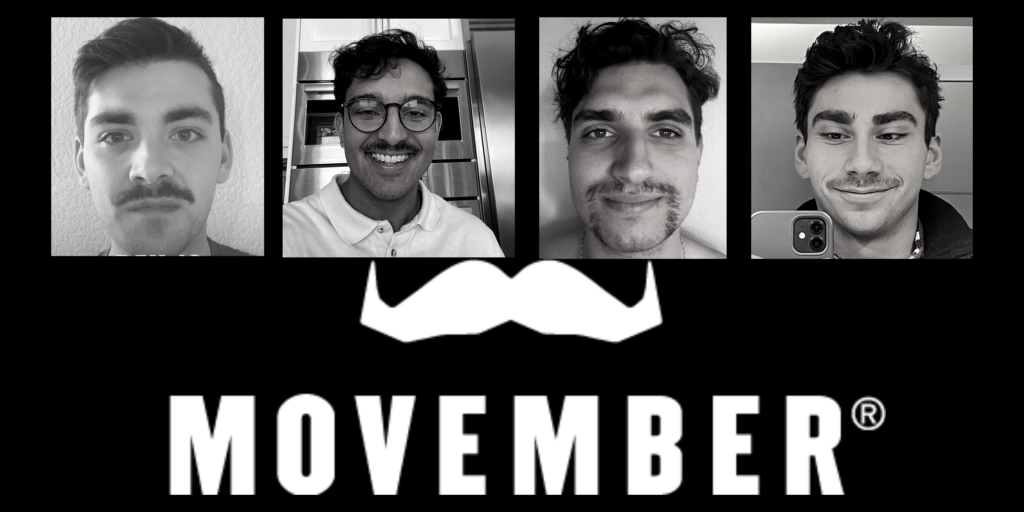
Listen to the audio version below:
For nearly two decades now, men have traded polished faces for ungroomed mayhem in November to raise money for mens’ health.
This year, many students have joined the ranks of those embracing the whisker.
Famously known as Movember, the movement first began in 2003 in Australia when Travis Garone and Luke Slattery decided to harness the power of the mustache.
Garone and Slattery were inspired by a friend’s mother who was raising money for breast cancer and decided to make a campaign about men’s health and prostate cancer. They designed the rules of Movember and charged friends and family $10 for them to grow a mustache. They sent around an email with the title ‘are you man enough,’ and got 30 men on board.
In 2004, they formalized the concept and, with help, decided to take the campaign to the next level. From there, the Australian-based charity has grown into the Movember Foundation. People have been taking part in the event by growing their facial hair and fundraising money to donate towards the prevention of prostate cancer, growing to include more funds being allocated towards mental health prevention.
According to the Canadian Mental Health Association, beliefs about masculinity cause a general lack of interest in health issues among men. This can be traced back to emotions that were seen as a weakness, says Tyler Watkins, development manager at Movember Toronto, which then leads to young men learning to suppress their emotions growing up. This is also why the foundation has now expanded to donate funds towards mental health.
The Toronto branch of the Movember Foundation launched in 2007 and since its inception has raised more than $100 million in support of men’s health. While everyone has their own reasons for partaking in the event, the goal is to remove the stigmas about men’s health.
According to the Movember Canada website, in 2021 $24.6 million was raised in Canada with almost 80 per cent of the funds donated directly to men’s health programs such as ones which tackle suicide prevention.
Tyler Watkins
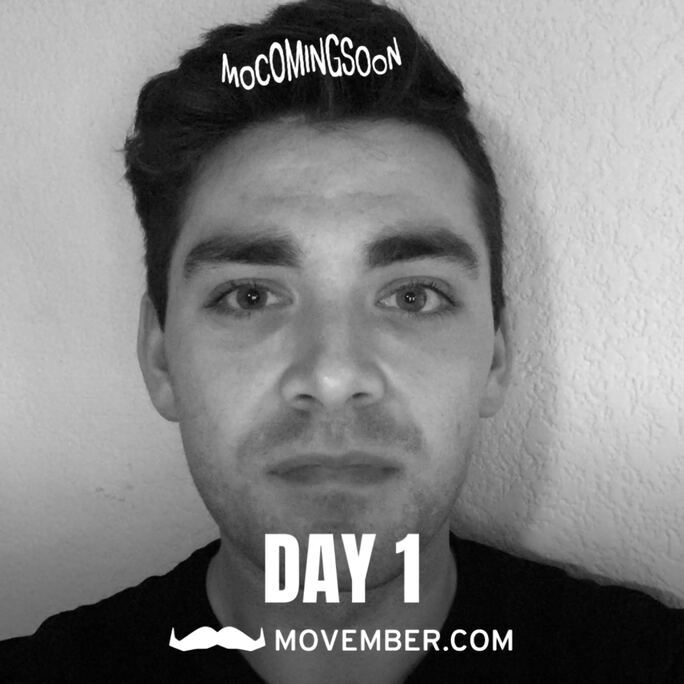

Tyler Watkins shows off his mustache growth over November. (Courtesy of Tyler Watkins)
“Through my own university experience years ago, I realized the hard way that you need to reach out for help,” said Watkins. “I had reached a pretty deep depression for a few months simply because I was scared about being vulnerable and open… this all goes back to what guys learned growing up, that showing emotion is some sort of weakness and because of that we don’t want to open up when things are going bad.”
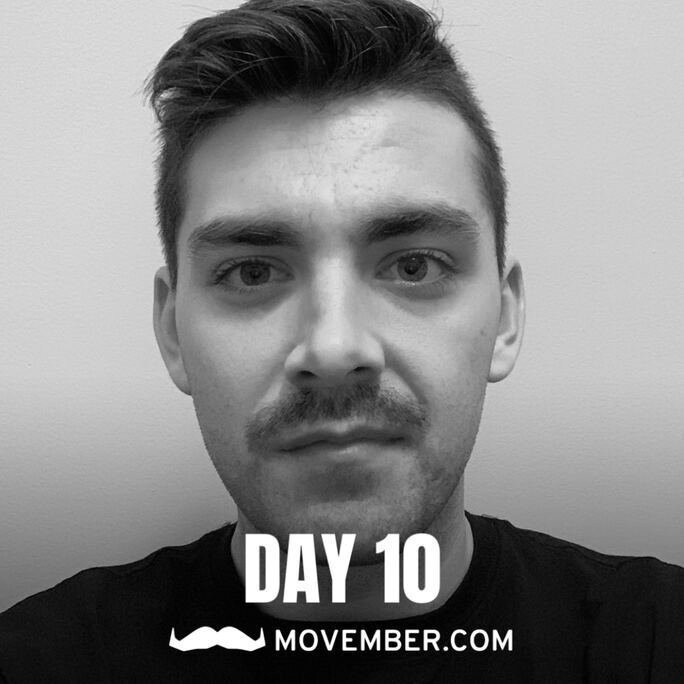
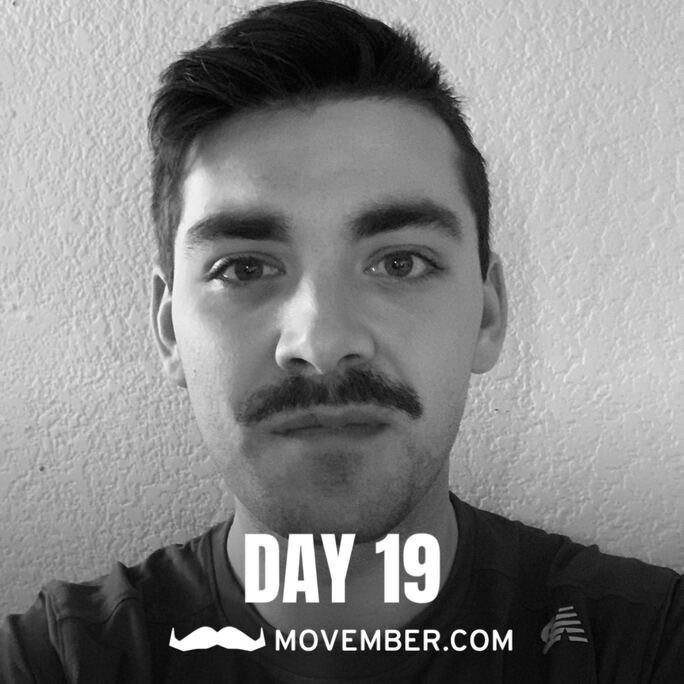
Tyler Watkins shows off his mustache growth over November. (Courtesy of Tyler Watkins)
Data released this year by the Mental Health Commission of Canada found that 75 per cent of the nearly 4,000 people who die by suicide in Canada each year are men. The data also found that on average, men die by suicide 3.4 times as often as women.
Current and recently graduated Canadian university students who are participating in Movember shared their stories about what got them involved in the annual event.
Joshua Taylor and Jake Greenberg
Josh Taylor, a master of kinesiology student at the University of Toronto, and his cousin Jake Greenberg have been participating in Movember since 2019.

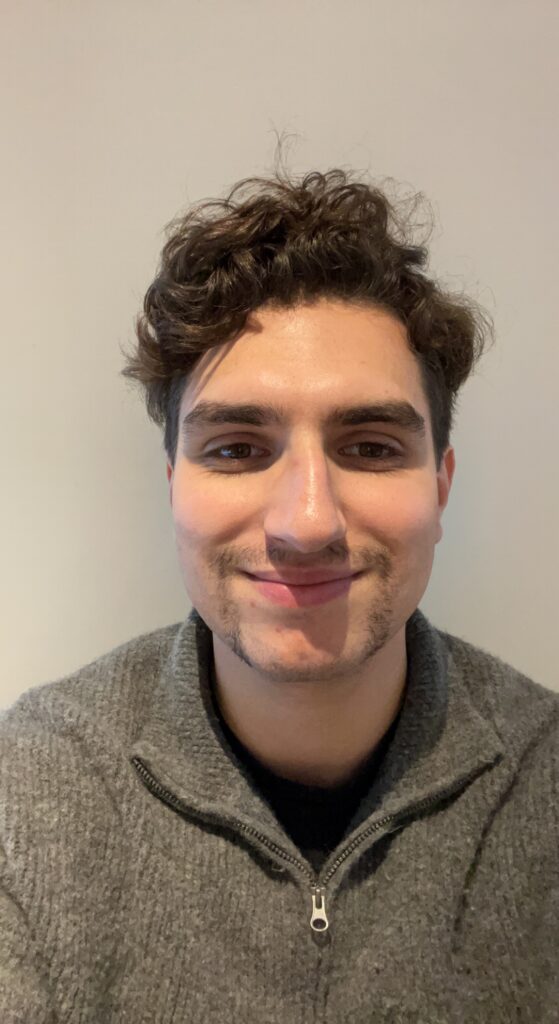

Joshua Taylor shows off his handle-bar mustache growth over November. (Courtesy of Joshua Taylor)
“The first year we did Movember was the year our grandfather had cancer,” said Taylor. “We got everyone on board and we sort of did it as a surprise to him.” Every year since, Taylor and his cousins have taken part in Movember to support their grandfather and pancreatic cancer. Last year the family raised a total of $1,800 in support of Movember.


Jake Greenberg shows off his mustache growth over November. (Courtesy of Jake Greenberg)
Greenberg says growing out his mustache was a way to ease into the harder conversations that come with cancer diagnosis. “When we surprised him with our mustaches it really made him happy and he ended up joining us and growing one too […] it was a way to bring everyone together during a very weird time,” he said.
For Greenberg and Taylor, Movember is a way to continue the conversation surrounding these difficult conversations about health.
“It’s a really good unspoken way to show people that you’re doing something in support of them,” said Greenberg. “When you’re walking down the street somebody could be dealing with a mental health issue. If they see your mustache and they know about Movember then, without speaking to someone who you’ve never met, you’ve now influenced them hopefully in a positive way.”
But Taylor says the issue is larger. “As a society, we’re definitely doing better talking about mental health… But there is still this competing view of society that young men are supposed to be tough and not overly emotional.”
Jamison Schulz-Franco
Jamison Schulz-Franco, a recent graduate from Toronto Metropolitan University, has been participating in Movember ever since 2016, his senior year of high school.

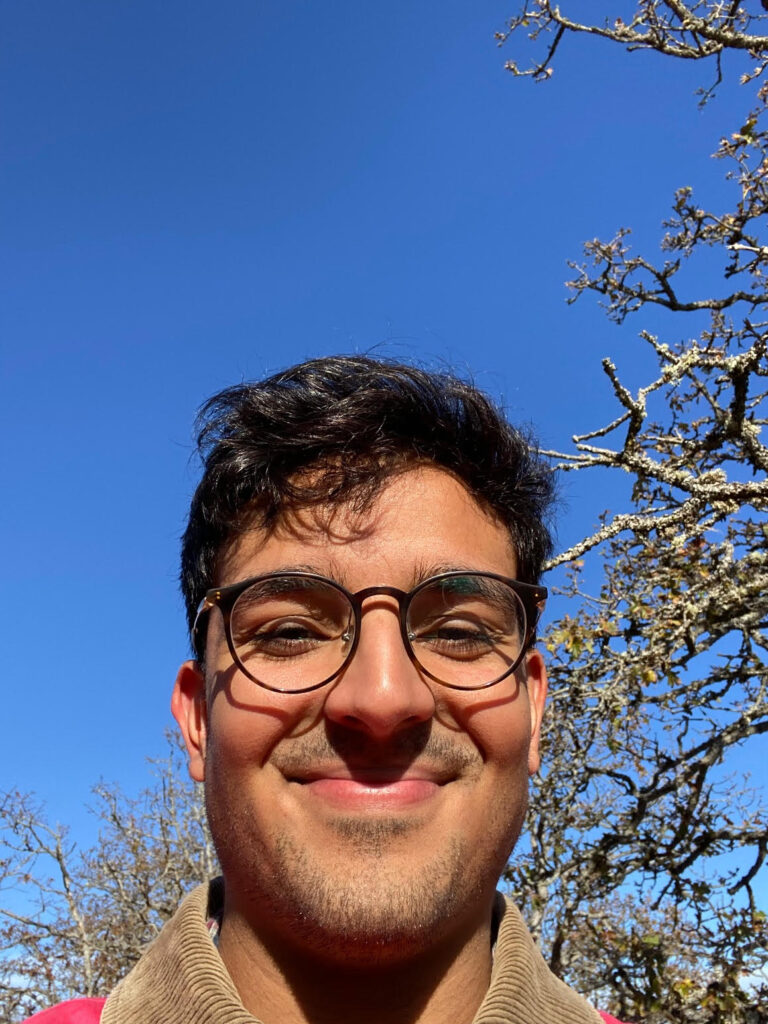

Jamison Schulz-Franco shows off his mustache growth over November. (Courtesy of Jamison Schulz-Franco)
This year, he says Movember is taking on a different meaning for him. “In both my professional and personal life I have been seeing the impacts of racism and hate, so I wanted to try and focus on mental health support for people who experience racism.”
Schulz-Franco wants to normalize conversations surrounding mental health and act as an ally toward the BIPOC community. He adds that toxic masculinity often prohibits conversations like this from happening and so Movember acts as the starting point for these conversations to happen in a meaningful way.
“This month is meant as a catalyst to keep the conversation going all year round on how we can be a better support to one another,” said Schulz-Franco, “and promote vulnerability and safety with one another.” Schulz-Franco is working to do just that through his bird-watching group, where he hopes to foster safe relationships with the members and encourage those needed open conversations.
Whether you’re fundraising for mental health, cancer awareness, or physical health, get ready, get set and grow those ‘staches.
To participate in Movember you can start by growing out a stache of your own or you can go to the Movember website to donate monthly, yearly, or one time to support prostate cancer, testicular cancer, and mental health research.


